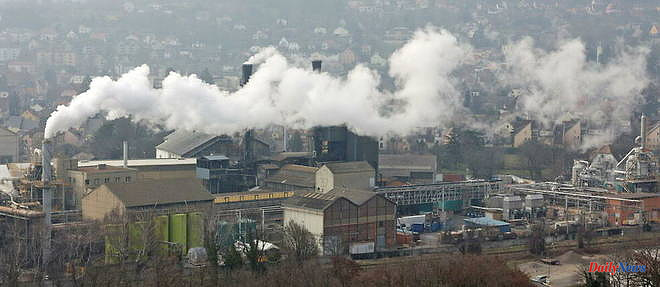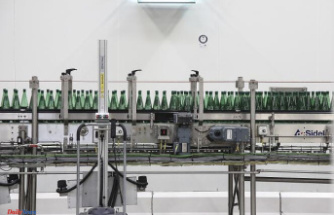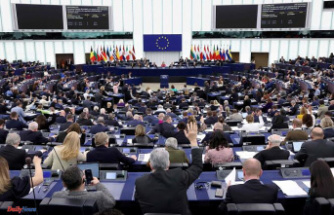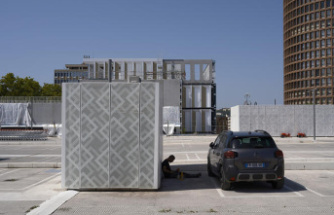Greenhouse gas emissions fell again in France last year, with a more marked decline at the end of the year, a trend that the government attributes to its climate policy but which also results from economic effects. "According to these pre-estimates, GHG (greenhouse gas) emissions resumed their downward trajectory in 2022 after the rebound observed in 2021," said Citepa, the body mandated to carry out the French inventory, on Monday. shows.
It estimates 2022 emissions at 408 million tonnes of CO2 equivalent, 10 million tonnes or 2.5% less than the previous year. "We are seeing a return to the interannual decline in emissions with the end of the post-Covid-19 rebound effect," comments Citepa. In 2021, thanks to the post-pandemic economic recovery, emissions had indeed recorded a sharp increase of 6.4% compared to 2020, which had been marked by a massive drop due to the paralysis of the economy linked to Covid-19.
Over the first nine months of 2022, these emissions, responsible for global warming, had almost stagnated (-0.3%) compared to the same period of 2021, according to Citepa data published at the end of the year. last year. This stagnation was due to a greater use of fossil fuels to compensate for the difficulties of the nuclear fleet, but also to transport.
But "from October to December 2022, monthly emissions are down sharply compared to those of 2021 (-9% in October, -11% in November, -5% in December), "said Citepa on Monday in its latest publication. By sector of activity, the picture is mixed. Thus annual emissions increased by 8% in energy in 2022, and more modestly by 2% in transport. On the other hand, they fell by 8% in manufacturing industry and construction and fell by 15% in the residential/tertiary sector.
The government has welcomed a trend which, in the second half of 2022, it says reflects "the effects of (its) climate policy in recent months". “In the fourth quarter of 2022, our emissions thus fell by 8.5% compared to the previous year. This is in particular the result of the sobriety plan and the mobilization, "commented the Minister of Energy Transition, Agnès Pannier-Runacher. "In the coming months, I will carry out an upcoming energy-climate program, which will set even more ambitious objectives as there is still a long way to go," she added.
France, in its revised national low carbon strategy - after not achieving the objectives for the period 2015-2018 - has set itself a carbon budget not to be exceeded for the period 2019-2023 which amounts to 422 MtCO2e/year on average. The average of pre-estimated emissions over the period 2019-2022 currently amounts to 413 Mt CO2, subject to the consolidation of estimates, indicates Citepa.
Despite everything, the current trend is out of step with the decrease necessary for France to meet its objective of achieving carbon neutrality by 2050. It has committed to reducing its emissions by 40% by 2030, an ambition that must be reinforced to take into account new European objectives (-55% compared to 1990).
According to the High Council for the Climate (HCC), to achieve these objectives, the country should double the rate of reduction in its emissions to around 16 million tonnes of CO2 equivalent (-4.7%) per year over the period 2022-2030. . Anne Bringault, program coordinator at the Climate Action Network (RAC), also believes that the declines recorded in 2022 "are a bit of a sham". The residential sector in particular "benefited a lot from very mild temperatures over the last part of the year, that does not mean that it would happen again", she notes to AFP.
“Industry has also suffered with rising energy prices cyclical shutdowns that are not really climate change policies, and that may not happen again,” she said. The association is also concerned about the increase in emissions in the transport sector, judging that the latter is "unfortunately still very dependent on fossil fuels".












